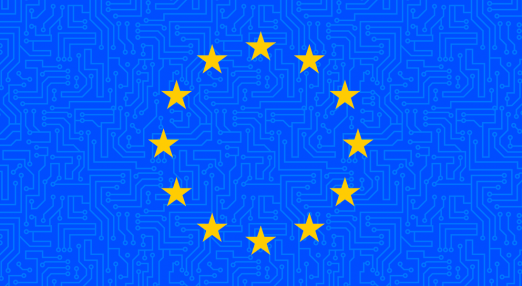algorithms
Filter by...
-

12 civil society organisations tell delivery platforms it’s time to deliver answers on how they use algorithms to manage their workers
EDRi member Privacy International and more digital rights groups, together with trade unions, call out food delivery platforms for their algorithmic management of workers. In an open letter co-signed by 12 organisations, they make three clear recommendations for the platforms to improve.
Read more
-

The secret services’ reign of confusion, rogue mayors, racist tech and algorithm oversight (or not)
Have a quick read through January’s most interesting developments at the intersection of human rights and technology from the Netherlands.
Read more
-

Big Tech platforms are hurting us. 50 organisations urge the EU to #FixAlgorithms
The list of negative consequences of how dominant online platforms shape our experience online is neither short nor trivial. From exploiting users’ vulnerabilities, triggering psychological trauma, depriving people of job opportunities to pushing disturbing content to others, these are just some examples. While members of the European Parliament debate their position on the Digital Services Act (DSA), EDRi’s member Panoptykon Foundation (Poland), together with 49 civil society organisations from all over Europe, including EDRi, Amnesty International, Article 19, European Partnership for Democracy and Electronic Frontier Foundation, urge them to ensure protection from the harms caused by platforms’ algorithms.
Read more
-

Can the EU Digital Services Act contest the power of Big Tech’s algorithms?
A progressive report on the Digital Services Act (DSA) adopted by the Committee on Civil Liberties, Justice and Home Affairs (LIBE) in the European Parliament in July is the first major improvement of the draft law presented by the European Commission in December. MEPs expressed support for default protections from tracking and profiling for the purposes of advertising and recommending or ranking content. Now the ball is in the court of the leading committee on internal market and consumer protection (IMCO), which received 1313 pages of amendments to be voted in November. EDRi's member Panoptykon Foundation explores if the Parliament would succeed in adopting a position that will contest the power of dominant online platforms which shape the digital public sphere in line with their commercial interests, at the expense of individuals and societies.
Read more
-

Why Facebook’s proposed hate speech policy on Zionism would only add fuel to the fire
Pressured to combat surging hate speech and anti-Semitism on its platform, Facebook is looking into how it should moderate the use of the word “Zionist,” and whether to add the term as a protected category under its hate speech policy. EDRi's member Access Now doesn’t think that is a good idea, particularly given Facebook’s inability to strictly adhere to human rights principles in its content moderation practices.
Read more
-

Who should decide what we see online?
Online platforms rank and moderate content without letting us know how and why they do it. There is a pressing need for transparency of the practices and policies of these online platforms.
Read more
-

Dangerous by design: A cautionary tale about facial recognition
In this fifth and final installment of EDRi's facial recognition and fundamental rights series, we consider an experience of harm caused by fundamentally violatory biometric surveillance technology.
Read more
-

Facial recognition and fundamental rights 101
This is the first post in a series about the fundamental rights impacts of facial recognition. Private companies and governments worldwide are already experimenting with facial recognition technology. Individuals, lawmakers, developers - and everyone in between - should be aware of the rise of facial recognition, and the risks it poses to rights to privacy, freedom, democracy and non-discrimination.
Read more
-

Why tech is not “just a tool”
Throughout October 2019, digital rights-watchers welcomed new reports warning about the human rights crises of Artificial Intelligence (AI) and other digital technologies. From Philip Alston’s caution that the UK risks “stumbling zombie-like into a digital welfare dystopia” to David Kaye’s critique of internet companies’ and States’ failure to respect human rights online, civil society is […]
Read more
-

EU – Japan trade agreement undermines algorithmic transparency
The EU trade agreement with Japan undermines algorithmic transparency, Dutch EDRi member Vrijschrift wrote in a letter to the Dutch Parliament.
Read more
-

Running an algorithmic empire: The human fabric of Facebook
Facebook, the most popular social networking platform, has undoubtedly become one of the most influential entities in our networked world. As SHARE Lab and researchers previously explained, Facebook can be seen as a huge, global factory of immaterial labour in which its users have basically one role – churn out as much personal data as […]
Read more
-

Dangerous myths peddled about data subject access rights
Now that the date on which the General Data Protection Regulation (GDPR) becomes enforceable is rapidly approaching, the European Data Protection Authorities (DPAs) are in the process of clarifying what their shared positions will be on various topics, including profiling. This is done through stakeholder consultation meetings.
Read more
